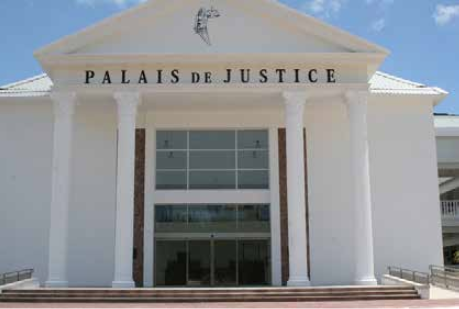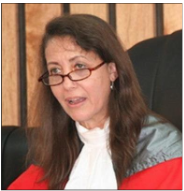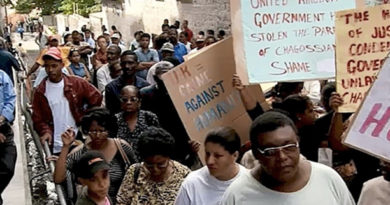Seychelles Judiciary sets out Media Access Guide
The Judiciary of the Seychelles has published a Media Guide to guide journalists in their coverage of court proceedings.
Access to Courthouse and Courtrooms
Members of the public and the media may attend all sessions of the courts unless the law requires, or a judge orders, that all or part of a proceeding be held in private. Spectators in the courtroom must not disturb the court process. If court is in session, spectators should enter quietly and close doors to the courtroom gently. Spectators should not talk in the courtroom.
1. Access Facilitation Timeliness is an important part of accessing courtrooms and court files. Court staff will provide access as quickly as possible, as long as requests are made with due notice and enough time is granted to the court staff to manage the request together with their other court duties, which include; matters scheduled to be heard in court proceed on time; the needs of parties, witnesses, interpreters and jurors are met; and judicial direction is followed.
2. Accessing Court for Coverage Media requesting access facilitation to the courtrooms for coverage are expected to submit the names of their journalists and other media personnel accessing the Courthouse to the Public Relations Officer at least one day prior to the case being heard.Media are expected to arrive at least 10-15mins before a case is heard in court to allow ample time for covid-19 screenings (to check temperature) and to ensure they are set up and settled before the case begins. As much as possible, the Public Relations Officer will facilitate media personnel’s speedy and priority access to the courthouse prior to the hearings / judgements, provided the Media Access Forms are filled out and sent to the PR Officer no later than one day prior to the relevant case being covered. In extreme last minute circumstances, the journalist may contact the PR Officer directly via mobile to inform of their arrival to courts for a coverage. Upon arrival at the Supreme Court, please enter from the main entrance on the left side (the left door with the words “OUT” on it) and indicate to the security that you are from the media. This line is for lawyers, judges, and media so they do not have to waste time in line with the public.
3. Cameras and electronic recording devicesMembers of the media are permitted to audio record, film, or take photos outside the courtrooms, provided they are not blocking access and movement of the public and Court staff. No audio record, filming, or photo taking is permitted inside the court rooms unless permission from the presiding Judge is granted. Media are encouraged to approach the judge ahead of the hearings to ask if some footage / photos can be taken discreetly, however the final decision is at the Judge’s discretion; permission is not guaranteed.
4. ConductThe media should do their utmost not to crowd the hallway and front door access to the courtrooms when conducting interviews, filming, and taking photographs, as members of the public and Court staff need freedom of movement. While it is understandable that footage / photos of people entering and leaving the court room is necessary for coverage, more in depth interviewing should be conducted away from court room doors and when possible, at the designated areas chosen and shown to media personnel by the Court staff and Public Relations Officer.
5. Media requests & InformationThis portal https://eservice.egov.sc/Judiciary/ allows you to know which cases will be heard on a particular day, along with some of the details (court room, presiding Judge, lawyers, etc.). You can access it via our website as well https://www.judiciary.sc/ on our home page under the Judiciary News section (see This Week in Court tab). It is important to note that the Public Relations Officer cannot comment on behalf of the Judiciary on any current events, unless it is concerning an initiative spearheaded by the Judiciary itself. The PR Officer and other court staff can only make available the judgements once they are all out and compiled at the end of each week. Most judgements are made available on Seylii, but for other please contact the Registrar. If a case is high profile, we will make the judgement and information available as soon as possible. The Judiciary does not comment on cases, but journalists are encouraged to seek more information or comments from lawyers representing the parties of a case.
6. Resources The media is encouraged to seek resources from our Registrar Division if they wish to get copies of judgements. Our website www.judiciary.sc is full of useful information; from details on what cases are being heard in court, to legal advice,contact details, and other links. Additionally, important judgments are published online by the Seychelles Legal Information Institute (Seylii). Where a judgment/order/decision is not available online, the Media should contact the Registry at the SupremeCourt.




